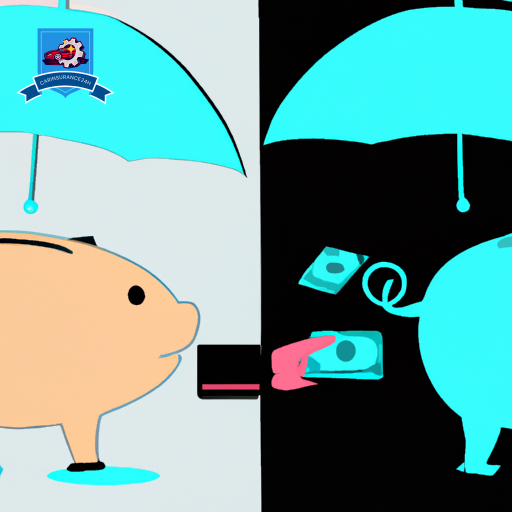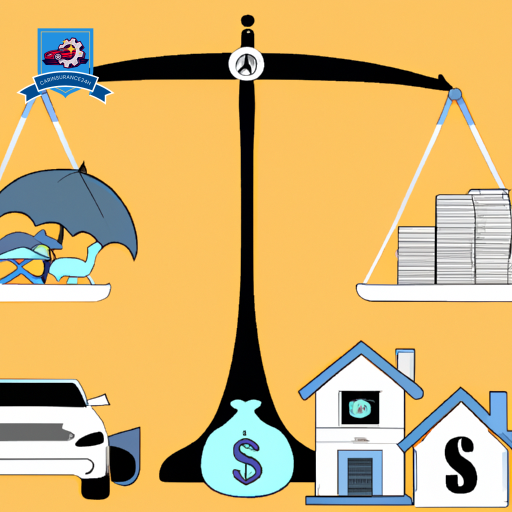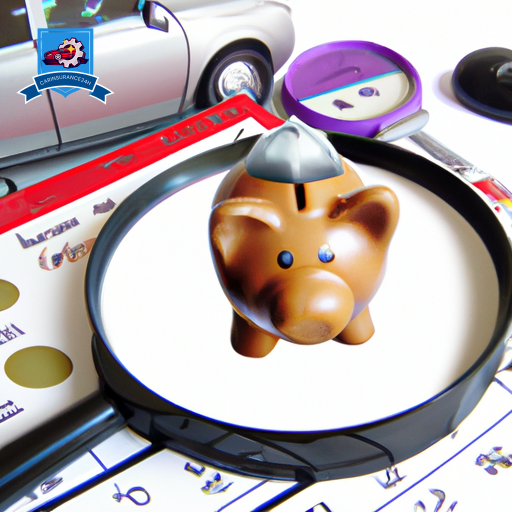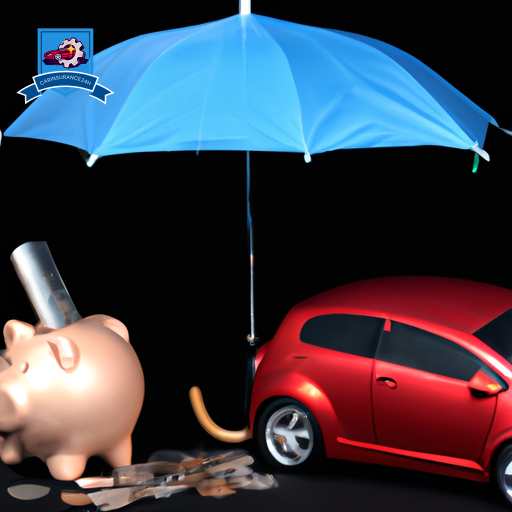High deductible car insurance plans are increasingly becoming a prudent choice for many drivers, primarily due to their potential for lower premium costs. This type of insurance strategy not only facilitates significant savings but also subtly encourages policyholders to adopt more responsible driving habits.
By having to bear a higher out-of-pocket cost before insurance coverage kicks in, drivers are likely to become more cautious and aware of their driving behaviors, thereby reducing the likelihood of accidents. Such plans can serve as an impetus for better financial planning and cash flow management.
To understand how this approach can lead to reduced insurance claims and foster a heightened sense of risk awareness, one must explore the intricate balance between immediate costs and long-term benefits.
Lower Premium Costs

Why opt for high deductible car insurance plans when lower premium costs can greatly ease your financial burden? This question is at the forefront of many policyholders’ minds when maneuvering the complex landscape of car insurance. The answer lies in the inherent structure of insurance policies where a higher deductible directly correlates to lower premium costs. This relationship is vital for individuals aiming to manage their short-term financial obligations without compromising on the long-term security offered by complete coverage limits.
Choosing a high deductible plan means you are agreeing to pay a larger sum out of pocket before your insurance kicks in to cover the rest. This might seem counterintuitive at first, but it considerably reduces the monthly or annual premium you are required to pay. For individuals with a solid emergency fund or those who rarely get into accidents, this can lead to substantial savings over time. Insurance companies offer premium discounts as an incentive for taking on more of the financial risk yourself. This model is not just beneficial for the policyholder but also for the insurer, as it reduces the number of small claims they have to process and pay out.
Additionally, high deductible plans compel policyholders to carefully consider their coverage limits. By understanding the nuances of their policy, individuals can make informed decisions about the level of risk they are willing to accept. This careful deliberation guarantees that policyholders are not paying for coverage they don’t need, thereby optimizing their insurance expenditure. Essentially, opting for a high deductible plan can be a strategic financial decision that offers both short-term and long-term benefits.
Encourages Responsible Driving
One substantial advantage of opting for a high deductible car insurance plan is that it naturally incentivizes more responsible driving behaviors among policyholders. With higher out-of-pocket costs looming in the event of an at-fault accident, drivers are more likely to adhere to traffic laws and employ accident prevention strategies. This shift in driving habits not only benefits the individual driver but also contributes to overall road safety.
To elucidate, here are three key ways in which high deductible plans encourage responsible driving:
-
Enhanced Awareness of Traffic Laws Compliance: Knowing that a lapse in adherence to traffic rules could lead to substantial financial consequences, drivers are more vigilant about obeying speed limits, signal regulations, and other traffic laws. This heightened awareness reduces the likelihood of traffic violations and accidents.
-
Adoption of Accident Prevention Strategies: Drivers are motivated to adopt safer driving practices such as maintaining a safe following distance, being cautious in adverse weather conditions, and avoiding distractions while driving. These strategies significantly lower the risk of incidents that could lead to claims.
-
Cultivation of Defensive Driving Skills: With more at stake, drivers may seek out defensive driving courses to improve their skills and awareness on the road. These courses often cover techniques for avoiding accidents, even when other drivers are behaving unpredictably.
Improves Financial Planning

Opting for a high deductible car insurance plan inherently fosters an environment conducive to better financial planning. By necessitating the accumulation of savings to cover potential out-of-pocket expenses in case of an accident, policyholders are encouraged to adopt a more disciplined approach to their finances.
Concurrently, the reduction in monthly insurance premiums allows for a more efficient allocation of personal financial resources.
Encourages Savings Accumulation
High deductible car insurance plans incentivize policyholders to accumulate savings, enhancing their overall financial planning strategies. Opting for a higher deductible encourages individuals to set aside funds to cover potential future claims, which can inadvertently lead to the formation of a robust emergency fund. This process instills a savings discipline among policyholders, compelling them to prioritize financial security and preparedness.
Key benefits include:
-
Building an Emergency Fund: Regularly allocating money towards a savings account for deductibles increases financial resilience.
-
Instilling Savings Discipline: The necessity to save for deductibles fosters habitual saving behaviors.
-
Strengthening Financial Planning: The practice of saving for a deductible integrates seamlessly into broader financial planning efforts, encouraging a more holistic approach to managing personal finances.
Reduces Monthly Expenses
Choosing a high deductible car insurance plan greatly decreases monthly insurance premiums, directly contributing to improved financial planning by reducing regular outgoings. This approach allows policyholders to allocate funds more efficiently, enhancing their ability to manage and predict monthly expenses.
By opting for higher deductibles, individuals basically wager on their driving safety and vehicle security, which, in turn, lowers the cost of their insurance. However, it’s important to understand the coverage limits and policy exclusions that accompany these plans. A well-informed decision guarantees that while enjoying lower premiums, policyholders are not left vulnerable due to inadequate coverage.
This balance between cost-saving and risk management is central to optimizing financial planning and achieving a comfortable level of financial security.
Cash Flow Management

How can high deductible car insurance plans impact your cash flow management? Opting for a high deductible plan can greatly influence how you manage your monthly finances, offering more control over your cash flow. This choice, while it comes with a higher out-of-pocket cost in the event of a claim, reduces your monthly insurance premium. The savings created by lower premiums can be strategically allocated to enhance your financial health in several ways:
-
Increased Investment Contributions: The savings on premiums can be redirected towards investment strategies, allowing your money to potentially grow over time. By investing the saved funds, whether in stocks, bonds, or other investment vehicles, you’re leveraging the opportunity cost of a lower insurance bill for potentially higher financial gains in the future.
-
Boosting Emergency Funds: A strong emergency fund is important for financial stability. The monthly savings from opting for a high deductible policy can be systematically added to your emergency savings. This proactive approach ensures that you’re better prepared for the deductible if you need to make a claim, as well as other unforeseen expenses.
-
Debt Repayment Acceleration: Another wise use of the additional cash flow is to accelerate the repayment of outstanding debts. Applying the saved money towards high-interest debt can reduce the total interest paid over time, contributing to financial freedom sooner than anticipated.
Reduced Insurance Claims

Beyond managing cash flow more efficiently, opting for a high deductible car insurance plan often leads to fewer insurance claims, a practice that can further enhance one’s financial stability. High deductible plans inherently encourage policyholders to exercise greater caution and discretion when considering filing a claim, as the out-of-pocket expenses before insurance coverage kicks in are greatly higher. This discernment in claim filing not only reduces claim frequency but also positively impacts the policyholder’s insurance record over time.
A critical aspect of reduced insurance claims is the potential for long-term savings on premiums. Insurance companies often reward policyholders who file fewer claims with lower premium rates, recognizing their lower risk profile. This dynamic creates a virtuous cycle; the initial decision to choose a higher deductible and assume a greater share of risk directly contributes to a decreased likelihood of filing minor claims, thereby leading to potential premium discounts in the future.
Additionally, the relationship between claim frequency and policy limits is pivotal. High deductible plans naturally align with higher policy limits, providing substantial financial protection in the event of significant claims. This alignment guarantees that while policyholders may pay more upfront for minor incidents, they are well-covered for substantial losses. This strategic approach to insurance can greatly mitigate financial risks associated with severe accidents or damages.
Enhanced Risk Awareness
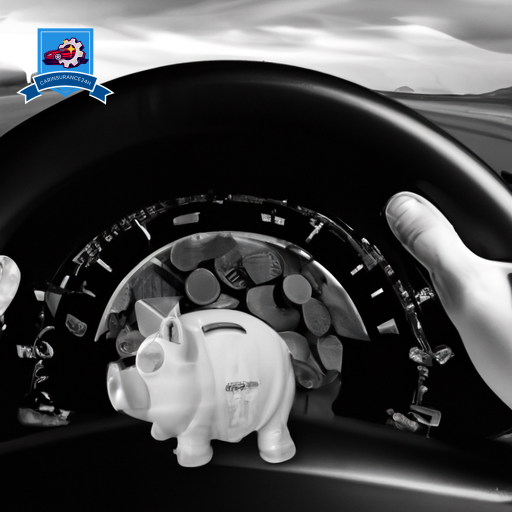
High deductible car insurance plans inherently encourage policyholders to adopt a more cautious approach to driving.
This heightened sense of risk awareness not only promotes safer driving habits but also contributes to a decrease in unnecessary insurance claims.
The correlation between increased deductibles and reduced risk-taking behavior underscores the effectiveness of this strategy in fostering a more responsible driving culture.
Promotes Cautious Driving Behavior
Why might individuals with high deductible car insurance plans exhibit more cautious driving behaviors? The connection between higher deductibles and enhanced driving caution is not merely coincidental. Drivers aware of the financial implications of their deductible are more likely to adhere to safe driving practices. This behavior is driven by several key factors:
-
Increased Financial Responsibility: Drivers are more mindful of traffic laws to avoid accidents, knowing a higher out-of-pocket cost is at stake.
-
Lower Accident Rates: Conscious efforts to drive safely lead to fewer incidents, directly impacting accident rates positively.
-
Heightened Awareness: The potential financial impact encourages drivers to stay alert and aware, reducing the likelihood of costly mistakes.
Ultimately, the heightened financial stake promotes a culture of safety and responsibility on the roads.
Reduces Unnecessary Claims
Adopting high deductible car insurance plans encourages policyholders to exercise enhanced risk awareness, substantially reducing the incidence of unnecessary claims. This approach not only fosters a more deliberate utilization of insurance coverage but also greatly curtails the temptation for claim fraud.
With higher deductibles, individuals become more judicious in filing claims, reserving their insurance for truly significant losses rather than minor incidents. This discernment in claim submission directly contributes to the integrity of the insurance system, ensuring that policy limits are preserved for situations of genuine need.
Long-term Savings Potential

Opting for a high deductible car insurance plan can access significant long-term savings for policyholders. This choice, often overlooked in favor of lower deductible plans for its immediate affordability, opens up a broader horizon of financial benefits. High deductible plans inherently lower premium costs, but their true value unfolds in the discipline and financial planning they encourage. Here’s how:
-
Investment Opportunities and Emergency Fund Building:
The money saved on premiums can be redirected into investment opportunities or building an emergency fund. This strategic allocation not only secures funds for potential deductible payments in the future but also enhances your financial portfolio. By channeling savings into investments, policyholders can potentially earn returns, further increasing their net savings over time. Similarly, bolstering an emergency fund provides a cushion that can cover the deductible in case of a claim, mitigating the risk of high out-of-pocket expenses. -
Encourages Safe Driving:
Knowing that a higher deductible is at stake, drivers are often incentivized to adopt safer driving habits. This behavior reduces the likelihood of claims, which in turn preserves no-claim bonuses and keeps premiums low. -
Tax Advantages for Business Owners:
For those who use their vehicles for business purposes, the premiums and deductibles of car insurance may be tax-deductible expenses. This aspect can contribute to overall long-term savings, further enhancing the attractiveness of high deductible plans.
Frequently Asked Questions
How Do High Deductible Car Insurance Plans Affect My Eligibility for Rental Car Coverage During Repairs?
High deductible car insurance plans may influence eligibility for rental car coverage during repairs based on rental company policies and coverage limits. It’s essential to review your insurance policy for specific terms and conditions.
Can Switching to a High Deductible Plan Impact My Credit Score or Insurance Credit Score?
Switching to a high deductible plan does not directly ripple through to your credit score. However, vigilant credit monitoring and consistent payment history are essential, as late payments could indirectly affect your insurance credit score.
Are There Specific Emergency Funds or Savings Strategies Recommended for Managing the Higher Out-Of-Pocket Costs Associated With High Deductible Plans?
To manage higher out-of-pocket costs, it is advised to establish dedicated savings accounts and explore prudent investment strategies, ensuring a financial cushion is available to cover unexpected expenses without compromising one’s financial stability.
How Does a High Deductible Plan Influence the Process and Options for Dispute Resolution in Case of Dissatisfaction With Claim Settlements?
Traversing claim settlements with a high deductible plan is like traversing a labyrinth; it necessitates adept claim negotiation and, potentially, legal representation to make certain fair resolution, especially in disputes where satisfaction with claim outcomes is contested.
What Are the Implications of High Deductible Plans on Policy Renewals, Particularly if I Have Not Made Any Claims During the Policy Period?
High deductible plans often lead to premium reduction upon policy renewal, particularly if the policyholder has not filed any claims during the period. This is attributed to perceived lower claim frequency by insurers.



